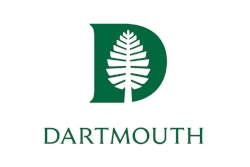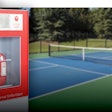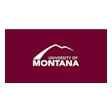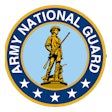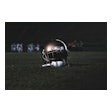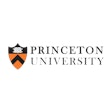For security practitioners working in the sports and special events industry today, a broad knowledge base is essential to their success. The Certified Sport Security Professional (CSSP) designation was developed to address the increasingly complex job of protecting and securing people, property and information. Credentialing is a proven method of establishing competency standards and assigning credibility within a career field. To understand more about about why the need for certification is becoming more critical for sport security professionals, the National Center for Spectator Sports Safety and Security (NCS4) asked two leading industry professionals to explain why they view certification as an important part of professional growth and industry advancement.
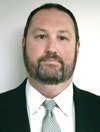 DONALD PAISANT
DONALD PAISANT
DONALD PAISANT is chief of public safety for SMG New Orleans. He is responsible for security operations for the Mercedes Benz Superdome, Smoothie King Center and Champion Square. He has more than 30 years of experience in public safety and was part of the development team for the Certified Sport Security Professional certification.
When I arrived in my position at SMG New Orleans in 2011, one of the first things I did was attend the NCS4 Conference. I was impressed by the content of the conference and vast array of security professionals in attendance. After the conference, I reached out to NCS4 director Lou Marciani and his team for consultation and information as I prepared to move forward with changing the culture of our security department and organization to better protect our venues.
I had the opportunity to meet with the NCS4 team and other security professionals on the proposal to design and implement a professional certification, known today as the Certified Sport Security Professional (CSSP). Working in collaboration with leaders in professional and collegiate sports security along with academics at the University of Southern Mississippi, we were successful in designing a certification that would standardize competencies among sport security professionals.
The certification is the first of its kind offered in the field of sport security. I am proud to be a member of the committee tasked with developing the certification program and look forward to the program producing quality sport security professionals.
At SMG, the certification contributes to our organizational needs and goals by displaying to our potential clients that our organization is dedicated to the safety and security of our fans, employees and facilities. The CSSP provides an opportunity to expand my knowledge base and contribute to my professional growth and the growth of the sport security profession, and I believe it will allow our industry to grow by developing talent to manage the ever-changing landscape of the industry.
The areas of knowledge required by the CSSP are critical to any successful sport security operation. Business and facility management, emergency planning and management, legal and regulatory, crowd management and security principles are all industry-based practices that are intertwined as part of today's sport security professional's toolbox. Sport security is evolving and remains a fluid situation with ever-changing threats and challenges. Certification helps the security professional stay up to date and allows them the opportunity to share information with peers.
 DREW PITTMAN
DREW PITTMAN
DREW PITTMAN is the assistant athletic director for facilities and operations at Baylor University. Drew has worked in intercollegiate athletics for more than 10 years. He serves as part of the Baylor Campus Emergency Preparedness group and is the liaison officer between the university and local public safety departments.
If I had to sum up why the Certified Sport Security Professional program is important to the industry, it is this: a failure for any of us is a failure for all of us.
The public's perception of security at our venues is only as good as our weakest link. People will not come to events at our venues if they do not feel safe. The CSSP program will lead to more qualified individuals filling safety- and security-related roles at our venues and in turn will result in safer and more secure events for our patrons.
I was personally motivated to pursue CSSP certification to further my abilities and knowledge as a venue professional. The certification is a great way to demonstrate professional competence and a commitment to the core values that are necessary for successful safety and security management. It allows my employer to evaluate me on a different level than others in the industry — they know that I have been validated by an industry certification that has set a high standard for excellence.
The CSSP program has captured a set of core competencies essential to the sports security profession. The Executive Track covers a wide range of topics important to any professional in our industry, and the Sport Event Risk Management and the Sport and Special Event Evacuation Training are outstanding courses that provide a wealth of information and a great opportunity to interact with others in the industry.
The training from the Executive Track crosses borders from law enforcement to event management to emergency management. This allows all involved to have a broad base of understanding of all that goes into securing a facility for a sporting event. We are no longer concerned only with the narrow scope of direct responsibilities, but with the overall security plan for the event. Reaching out of our distinct areas allows for a more comprehensive solution to the unique challenges and threats that we face.
At Baylor, the CSSP program has also allowed us to strive for new goals as an organization and to achieve new levels of readiness, through both the education aspect of the courses and the exchange of information with others involved in the certification process. Other CSSPs may have faced challenges similar to those of our organization and are always willing to share information relative to their experiences.
I'm a strong advocate for professional certification. I believe it allows for a standard to be set within the security industry. This standard allows us all to perform at a high level and raises the bar throughout the industry. I believe the use of accepted best practices and the Certified Sport Security Professional program will lead to improvements across the country.
This article originally appeared in the Spring 2016 issue of Gameday with the title "How does certification change the sports security industry? Two professionals share their insights."














